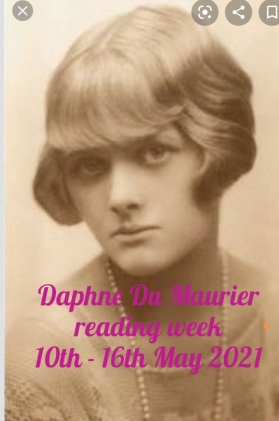While trying to think whom to cover for another Unnecessary Rankings! post, I was looking around my bookcases and alighted on Daphne du Maurier. She was prolific, and I’ve read quite a few of her books. But I am slightly wary – because I also haven’t read a fair number of her books. And there’s always the danger someone will reply “You haven’t read Jamaica Inn??” or something similar. Well no, dear reader, I have only read 10 of du Maurier’s books. And yet here we go, I’m going to rank them…
10. The Progress of Julius (1933)
Later reprinted as Julius, this novel about the rags-to-riches of a selfish, cruel man is fairly well-written – but I’ve put it last because I hated reading it. The whole thing just felt so antisemitic and I ended up feeling dirty reading it.
9. The Flight of the Falcon (1965)
There’s a reason you seldom hear anybody talking about this one. I found this story of two brothers getting to re-know each other in a beautiful Italian city interesting for the scenery, but otherwise pretty boring.
8. The Rebecca Notebook (1981)
The title essay of this slim collection is an outline of Rebecca and gives the sort of insight into its writing history that you wouldn’t normally get. It’s fascinating. But the other essays in the collection are more or less padding, and Daphne du Maurier doesn’t have a lot of interest to say about religion, but says it a fair few times.
7. The House on the Strand (1969)
The narrator, Dick Young, takes an experimental drug that transports him to the 14th century – where he follows the man who lived there then, Roger, and Isolda, married to a powerful local knight. Given my distaste for historical fiction, this was very much a mixed reception for me. I loved all the sections set in the present day, and was bored rigid by the 14-century stuff.
6. Short stories (various)
I’ve grouped all of these together, even though I’m sure there are some I haven’t read, as I’ve read a few collections and can’t remember what was where. ‘Don’t Look Now’ is deservedly famous, and I like all her stories that use creeping discomfort to create a gradual terror.
5. Frenchman’s Creek (1941)
This novel caused an infamous disagreement between me and Our Vicar’s Wife (aka my Mum) – when I reviewed it in 2012 and my Mum had a post the following day, defending the pirate! I maintain that the heroine and hero of this novel are horrible people, as she abandons a kind, good man to have an affair with a selfish man for whom ‘toxic masculinity’ could have been invented. But I can’t deny that it’s a very compelling and enjoyable read nonetheless.
4. Gerald: A Portrait (1934)
Daphne du Maurier’s biography of her father is an absolute delight. It is incredibly subjective, of course, and many of the passed-down anecdotes about his early life are probably apocryphal – but what makes it wonderful are du Maurier’s beautiful writing and the way we are immersed into Gerald du Maurier’s life as an actor and theatre manager. Daphne du Maurier brings the theatrical world alive, and the whole book is a lovely, fascinating tribute.
3. The Scapegoat (1957)
You do have to swallow quite a lot of disbelief in the premise of this novel – an English man is forcibly swapped with his French doppelganger, and nobody in the strange new family seems to suspect anything – but, after that, it’s worth it. As a novel of mistaken identity it is great fun – as a novel about the legacy of France’s occupation, it is very moving.
2. My Cousin Rachel (1951)
Did she or didn’t she? No novel does ambiguity better than My Cousin Rachel, which has – at its heart – the culpability or otherwise of a young widow, in the eyes of the deceased man’s cousin, Philip. His mind goes back and forth, putting him deeper and deeper into indecision and torment. Du Maurier walks a tightrope with impeccable judgement, and it is the perfect book group book.
1. Rebecca (1938)
If I were feeling all contrarian, I’d put something else at the top – but the reason Rebecca is the best known is because it’s the best. The unnamed Second Mrs de Winter comes to Manderley as the much-younger new bride of Maxim de Winter, who throws her to the wolves in the form of du Maurier’s greatest creation – the haunting, formidable housekeeper Mrs Danvers. The twists and secrets keep you guessing, and it’s the perfect updating of the gothic novel – still as chilling and engaging now as it was all those decades ago.
What do you make of my rankings? And which of her other books should I prioritise?



![The Rebecca Notebook and Other Memories by Du Maurier, Daphne [1907-1989]: (1981) | Little Stour Books PBFA Member](https://i0.wp.com/pictures.abebooks.com/inventory/22417507020.jpg?resize=268%2C369&ssl=1) When I was looking at how to double up Novella a Day in May with Ali’s
When I was looking at how to double up Novella a Day in May with Ali’s 





